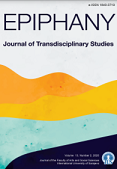APPLICATION OF AN ECOLOGICAL FRAMEWORK TO CLINICAL PRACTICE WITH ADOLESCENTS: TRANSGENERATIONAL TRANSMISSION OF WAR-RELATED TRAUMA IN BOSNIA AND HERZEGOVINA
APPLICATION OF AN ECOLOGICAL FRAMEWORK TO CLINICAL PRACTICE WITH ADOLESCENTS: TRANSGENERATIONAL TRANSMISSION OF WAR-RELATED TRAUMA IN BOSNIA AND HERZEGOVINA
Author(s): Mirsad Serdarević, Senija TahirovićSubject(s): Psychology, Clinical psychology, Health and medicine and law, Transformation Period (1990 - 2010), Present Times (2010 - today), Peace and Conflict Studies
Published by: International University of Sarajevo
Keywords: transgenerational trauma; war-related trauma; ecological framework; psychologist roles; PTSD;
Summary/Abstract: In the period between April 6, 1992 and December 14, 1995, an estimated 102,622 people were found to have died due to war-related causes in armed conflicts in Bosnia and Herzegovina. Of those killed in the war in Bosnia and Herzegovina it is estimated that 54% were civilians. The war profoundly affected the civilian population, which was subjected to mass killings, the systemic use of rape and sexual violence, and the physical and psychological torture inside concentration camps. This case study paper has four aims. First, it highlights the complexity and severity of the traumatic psychological effects of the war in Bosnia and Herzegovina on its citizens, including the effects of the war on the generation born during or shortly after the war. Second, the paper proposes a heuristic in the form of a broader theoretical approach; an ecological analysis of human development (Bronfenbrenner, 1989). This approach aims to provide a framework for research and the development of intervention strategies for the adolescent children of adult war survivors who have been affected by war-related trauma. Third, the paper presents a case vignette of an adolescent to demonstrate the application of the ecological framework to clinical practice with adolescents. Finally, we explore how the current cultural, political, and societal realities in Bosnia and Herzegovina affect the population in general and the children of war survivors in particular. The transition from a state of war to peace is a long and continuous process with residual effects of violent conflicts permeating the broader society and its inhabitants, even after the war’s official end over 23 years ago. The authors argue that roles of psychologists and other mental health providers should expand beyond traditional focus on intrapsychic problems. Rather, effective treatment strategies should also include recognition of and attenuation of the larger systemic stressors that patients experience on daily basis. This could be accomplished through collaboration among psychologists and patients, patients’ families, teachers, and community members, all of whom directly or indirectly affect patients’ treatment outcomes.
Journal: Epiphany. Journal of Transdisciplinary Studies
- Issue Year: 13/2020
- Issue No: 2
- Page Range: 9-24
- Page Count: 16
- Language: English

